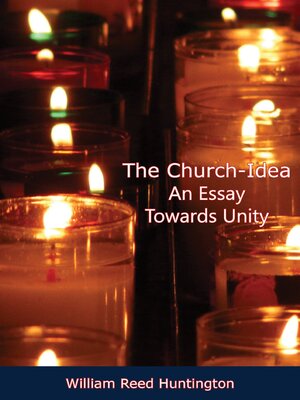
Sign up to save your library
With an OverDrive account, you can save your favorite libraries for at-a-glance information about availability. Find out more about OverDrive accounts.
Find this title in Libby, the library reading app by OverDrive.



Search for a digital library with this title
Title found at these libraries:
| Library Name | Distance |
|---|---|
| Loading... |
William Reed Huntington, a pioneer of the modern ecumenical movement, wrote this persuasive and impassioned plea for unity in 1879. It ultimately led to the Chicago Quadrilateral, the Episcopal Church's first statement about ecumenism. Now, as many Christians are considering how they might affiliate with those in other denominations, Huntington's book gains contemporary relevance. But ecumenical conversations about unity often get bogged down in resolving endless details. Huntington crystallized the discussion, proposing only four essential views for uniting all Christian churches: 1) Holy Scripture is the Word of God; 2) the Nicene and Apostle's Creeds are the rule of faith; 3) there are two sacraments (baptism and eucharist) ordained by Christ; and 4) the Episcopate is the keystone of governmental unity. In The Church-Idea, Huntington addresses the importance of uniting not only the Protestant churches with each other, but Protestant churches with the Roman Catholic Church as well. It is a plea that is historically significant, prophetic, and much needed today.-Print ed.







